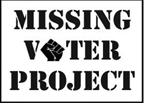Nearly $700 million a year in state income taxes withheld from worker paychecks in 16 states is being used to provide lavish subsidies to corporations rather than paying for vital public services. These diversions have gone to more than 2,700 companies, including major firms such as Sears, Goldman Sachs and General Electric. Few, if any, of the affected workers are aware, because no state requires they be informed on their pay stubs.
South Carolina’s Job Development Credits cost $70.3 million per year, the fourth-costliest diversion among the states. “Putting aside the question of this being a good investment of tax dollars, the immediate problem is a lack of transparency,” said Dr. Hoyt Wheeler, Co-chair of the SC Progressive Network.” Wheeler, a retired business professor, noted that the SC Department of Revenue does not reveal the credit amounts the 221 companies receive, or require the workers to be notified that their employer is pocketing their state income tax. “Individual workers at some of these companies can be donating as much as $1.25 an hour for years to the corporate bottom line, while thinking they are helping pay for schools and infrastructure,” Wheeler said.
These are the key findings of Paying Taxes to the Boss: How a Growing Number of States Subsidize Companies with the Withholding Taxes of Workers, a study published today by Good Jobs First, a non-profit, non-partisan research center based in Washington, DC. It is available here.
“Diversion of personal income tax revenues into subsidies violates how economic development has been defined,” said Good Jobs First Executive Director Greg LeRoy. “States are draining a revenue source that helps many of them address structural deficits.”
Paying Taxes to the Boss traces the rise of 22 subsidy programs derived from personal income taxes (PIT) that together cost about $684 million a year. “These programs are justified in the name of job creation, but they often end up subsidizing companies to move existing jobs from one state to another. In other cases, they go to employers that threaten to move unless they get paid to stay put,” said Philip Mattera, research director of Good Jobs First and principal author of the report.
“We recommend that states seriously consider abolishing PIT-based subsidies. Short of that, we urge Truth in Taxation: that companies be required to disclose the details of how much money is going where on every pay stub of affected workers,” LeRoy added.
The report examines South Carolina’s PIT-based subsidy program, known as Job Development Credits, or “JDC”. The JDCs are considered by the state Department of Commerce to be the “most significant incentive created by the 1995 Enterprise Zone legislation. The programs work in various ways in different states. Some allow employers to immediately retain (and never remit to the state) a large portion of the withholding taxes generated by designated new or retained workers. Some provide cash rebates or grants calculated the same way. Others provide credits against corporate income taxes or other business levies, with the value of those credits based on the withholding taxes of new or retained workers. (Some of these credits are cash-refundable if the credit exceeds the company’s tax liability.)
The share of withholding taxes diverted into subsidies can be as high as 100 percent (such as EDGE tax credits in Illinois and Indiana) and the duration can be as long as 25 years (such as Mississippi’s Withholding Rebates). Twelve programs divert 75 percent or more of withholding, and 18 do so for 10 years or longer.
The most expensive program is New Jersey’s BEIP, which in FY2011 approved new grants worth up to $73.2 million over their multi-year terms and disbursed $178 million during the year for previously approved contracts. Among states with subsidy recipient disclosure, those with the largest number of participants in PIT-based programs are: Ohio (567), Kentucky (509), Illinois (315), New Jersey (306) and Indiana (283).



